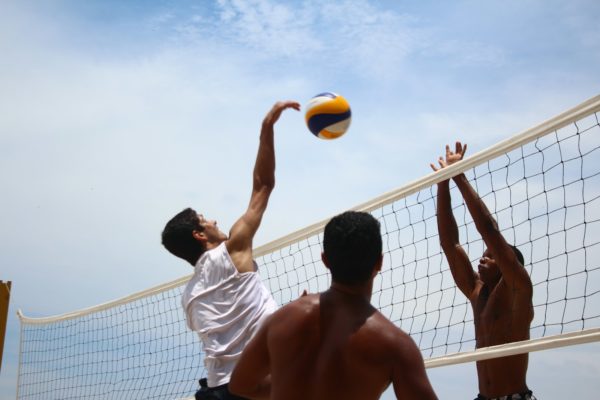Concrete examples demonstrating the effectiveness of the approach in the health field.
The ActionTypes® approach has been successfully used in many therapeutic situations, demonstrating its relevance to improving care, enhancing patient well-being and supporting recovery in a variety of medical and paramedical settings. These case studies highlight real-world examples where ActionTypes® has transformed practices and delivered tangible benefits for both patients and health care professionals.
1. Post-surgical rehabilitation: accelerated recovery
Context:
Paul, 48, had a knee operation and was having difficulty with standard rehabilitation exercises. Her physiotherapist, trained in ActionTypes®, decided to analyze and validate the dynamics of her motor preferences to adapt the sessions.
Action Types® approach:
- Identification of a preference to initiate its movements asymmetrically.
- Replacement of the symmetrical exercises with natural movements in line with its motor dynamics.
Consequence:
- Accelerated recovery with significant reduction of pain.
- Improved patient adherence to the rehabilitation program.
- Concrete impact: +30% mobility gain in 4 weeks.

Crédit : Pexels / Alex Green
2. Chronic stress in overworked professional
Context:
Julie, 38, was in a consultation for emotional and physical fatigue related to chronic stress. Her therapist used ActionTypes® to customize her coaching.
Action Types® approach:
- Analysis and validation of the dynamics of his motor and cognitive preferences, revealing a tendency to excessive analysis and perfectionism.
- Implementation of breathing and relaxation exercises adapted to its natural dynamics.
- Recommendations for incorporating breaks aligned with your daily rhythm.
Consequence:
- Significant reduction in symptoms of anxiety and fatigue.
- Improved ability to cope with stress in everyday life, with improved concentration and energy.
- Concrete impact: -40% of perceived stress after 6 weeks of follow-up.
3. Prevention of Amateur Athlete Injuries
Context:
Georges, 29 years old, was running and suffered from recurrent back pain. Traditional testing had not identified the exact cause of his repeated injuries.
Action Types® approach:
- Identification of inappropriate motor patterns that he forced himself to use for his stride.
- Increased ability to feel what type of stride was available at a given time and targeted muscle building on areas of vulnerability.
Consequence:
- Complete elimination of pain after 1 month of adapted practices.
- Resuming regular running activity with improved endurance and reduced risk of injury.
- Concrete impact: +25% improvement in posture and fluidity in the race.
4. Management of chronic pain for an elderly patient
Context:
Marie, 77 years old, suffered from chronic pain in her shoulders, limiting her mobility on a daily basis. Her osteopath decided to integrate the ActionTypes® approach for better personalization of care.
Action Types® approach:
- Analysis and validation of natural motor patterns and postures.
- Integration of fluid movements respecting its motor dynamics during manipulations.
- Recommendations for gentle practices to be carried out at home.
Consequence:
- Pain reduction from the first sessions.
- Improved mobility, allowing a gradual resumption of daily activities.
- Concrete impact: +40% range of motion after 2 months.
5. Emotional support for a troubled teenager
Context:
Thomas, 15, was having difficulty managing his emotions and expressing himself. Her psychologist has integrated the ActionTypes® approach to better understand her natural dynamics.
Action Types® approach:
- Identification and validation of a preference for kinesthetic activities that he almost never did.
- Integration of body movements to help him release and express his emotions.
- Recommendations for regular physical activities to complement the sessions.
Consequence:
- Better ability to accommodate emotions with reduced impulsive behaviors.
- Improved self-expression and quality of family relationships.
- Concrete impact: +35% progress on emotional adaptation scales after 1 month already.

Crédit : Pexels / Expressive Stanley
6. Overall effects observed in case studies
Professionals using ActionTypes® in their practice report, among others:
- +30% faster recovery in rehabilitation.
- +40% patient satisfaction through personalized care.
- -25% recurrence of chronic pain.
- …
7. What these case studies on ActionTypes reveal®
Sophie, Physiotherapist:
” ActionTypes® has allowed me to go beyond traditional approaches. The results speak for themselves, and my patients really feel the difference.”
Marc, osteopath:
” This method is a real asset in my practice, bringing precision and fluidity that I have never achieved before. “
Joëlle, sophrologist:
“Adapting my proposals to the dynamics of my clients’ natural preferences has transformed my sessions. They are moving faster and feel better understood.”
Conclusion: Concrete and tangible consequences with ActionTypes®
These case studies show the positive impact of integrating ActionTypes® into health and wellness. By respecting the natural dynamics of patients, this approach revolutionizes care practices and sustainably improves their effectiveness.



